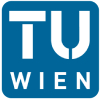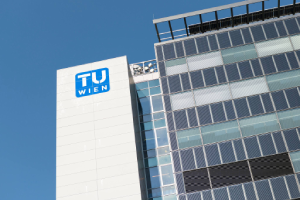1040 Vienna, Austria
Career Counselling

Technische Universität Wien is Austria’s largest institution of higher learning and research in science and technology. Located in the city of Vienna, it is home to over 26,000 students enrolled in 55 degree programmes.
The academic organisational structure of TU Wien contains 8 Faculties (Architecture and Planning, Civil and Environmental Engineering, Electrical Engineering and Information Technology, Informatics, Mechanical and Industrial Engineering, Mathematics and Geoinformation, Physics, and Technical Chemistry), with 50 subdivisions (49 Institu...
| Establishment year | 1815 |
| Total Students | 26,358 (2021-22) |
| International Students | N/A |
| QS World University Rankings 2024 | =184 |
| Campus Size | N/A |
| Total Number of Campuses | 6 |
| University Website | https://www.tuwien.at/ |
| No. of Schools and Divisions | 8 Faculties, with 49 Institutes and 1 Department within |
| Nobel Prize Winner Alumni | 1 (Richard Zsigmondy) |
| No. of Education Programs | 13 (undergraduate), 39 (Master’s), 3 (PhD) |
| Student to Faculty ratio | 6.2:1 |
Technische Universität Wien offers undergraduate and postgraduate courses through 8 Faculties, which are further subdivided into 49 Institutes and 1 Department.
All applicants to Master’s programmes at TU Wien must satisfy the following requirements:
Certain postgraduate programmes may mandate additional eligibility criteria; these can be found on individual course pages. For example:
The entry requirements for Bachelor’s Programmes at TU Wien are comparatively less strict; all applicants must submit a secondary school leaving certificate, in addition to a valid passport copy and an email address. Some courses require A2 level proficiency in German while others require the higher C1 level; exact information can be found on the relevant course webpage. All documents submitted by international students must be notarised in their country of origin. If the original language of any of these documents is not German or English, it must first be translated into either of these languages before notarisation and submission.
For undergraduate course applicants to TU Wien, certain highly sought after courses (for example, Architecture, Computer Science, Business Informatics, Spatial Planning) have selection programmes; these are mostly based on the information provided in the online application, though entrance tests may also be scheduled. All other Bachelor’s courses admit candidates after they complete an online study preparation and reflection programme; which aims to give applicants sufficient information about the chosen courses so that they can make informed choices. For these courses, applications are open between April 1 and early September each year. Courses with selection programmes have specific deadlines that can be found on the respective webpages.
After an applicant receives an offer to study at TU Wien, he or she must confirm acceptance either by paying the student fee (for EU candidates) or the tuition fee (for international candidates).
Applicants to postgraduate courses at TU Wien can enter in either semester; the deadline for application submission for international candidates from outside the European Union is 15 July (winter semester) or 15 January (summer semester). All the required documents must be notarised if they were not issued in Austria; in addition, documents that were not originally in German or English must be translated. After submission of all admission materials and fulfilment of course specific requirements, successful candidates are sent a Letter of Admission. After online registration and fee payment, the applicant has successfully completed the PG enrolment process.
All students studying at TU Wien (undergraduate and postgraduate) must pay the Students’ Union Fee. This comes to 21.20 Euros per semester, or approximately 42 Euros per year. Paying this is an essential part of the enrollment process.
International students who are not from the European Union must pay annual tuition fees of 726.72 or 1453.44 Euros per year, depending on the course. EU students do not have to pay tuition fees at TU Wien unless they exceed the expected duration of their course by more than two semesters. Students from certain countries may also be able to apply for a tuition fee waiver; the Department for Foreign Students assists applicants with all such queries. Finally, students suffering from an illness that causes them to miss more than two months of a semester may apply for a partial or complete tuition fee waiver; the University decides on a case by case basis.
TU Wien does not provide accommodation to its students; international applicants should book a room in the city before they arrive. Depending on the size and location of city accommodation, the price can range from 250 to 700 Euros per month. The University maintains an online database with contact details of several non-profit and private housing options for its students. International students should also budget a few hundred Euros per month towards food, travel, and shopping costs.

Technische Universität Wien has six campuses: Karlsplatz, Freihaus, Getreidemarkt, Gußhaus, Atominstitut, and the Science Center. These are spread throughout the city of Vienna. Karlsplatz contains the Main Building and several administrative locations of the University. Getreidemarkt has the prominent Energy High Rise Building. Gußhaus hosts several cutting edge research facilities, including the Center for Micro- and Nanostructures. Freihaus is home to the Main Library and several Institutes. The location of TU Wien near the city centre of Vienna ensures that students can easily reach some of the most famous cultural hotspots in Europe, including the Wien Museum, the Opera, and the Semperdepot.
The Student Union at TU Wien gives the students a voice and representation in the administration of the University. It serves as the apex organisation for individual student councils in different Institutes and Faculties. Most of the functions of the Union are related to academics and related activities.
Another prominent student organisation on the TU Wien campus is the Erasmus Student Network Buddynetwork, which is a focal point for international exchange students at the University. In addition to academic and extracurricular information, it also organises cultural and recreational events to enrich the lives of the students and enhance international cooperation.

Elite Athletes at TU Wien can represent the University in any one of several sports, including football (soccer), basketball, and cheerleading. These teams are officially known as the TU Robots, and compete in the Austrian College Sports League.
Some of the popular student clubs include the Chess Club, which meets twice a week - one of these sessions is free of charge, and open to the public. There are also weekly league games, in which students and staff members can participate after paying a small fee. The Argentine Tango club allows students who are interested in the popular dance form and in the culture of Argentina to learn more about its history and improve their tango skills. A popular annual event which brings hundreds of students together is hunTU, the scavenger hunt, where members of the University community search for rare items and submit them to win points and prizes.
TU Wien provides support services for many of its students based on need. For example, first year students can access additional mathematics coaching, mentoring from senior students, and fresher tutorials. There is an Accessibility Department at the university, which ensures that people with disabilities can access all the academic and recreational benefits that TU Wien provides. The University also provides individual counselling and group events to help students maintain robust mental health. Young parents can use TUKS, the University creche, or Kiwi, the childcare service. There are also several student organisations dedicated to gender equality, sustainability, and LGBTQ+ representation. Finally, the HTU department for international students is dedicated to helping foreign members of the University community with important questions related to fees and housing.
The TU Wien Career Center helps students get ready for internships and job interviews, and facilitates the application and selection processes. All the services are free, including workshops, seminars by companies, courses on resume writing and interview preparation, and one on one career counselling.
TU Wien maintains a webpage with details of all available scholarships. There are two kinds of scholarships available to students of the University: Funding Grants and Merit Scholarships.
Funding grants have two application windows every year (in May and October), and can be used to finance the scientific and artistic work of students enrolled in any degree or diploma. The total amount awarded ranges from 750 to 3,600 Euros.
Merit Scholarships are awarded to students who display excellent academic performance; the award amount is between 750 and 1,500 Euros.
